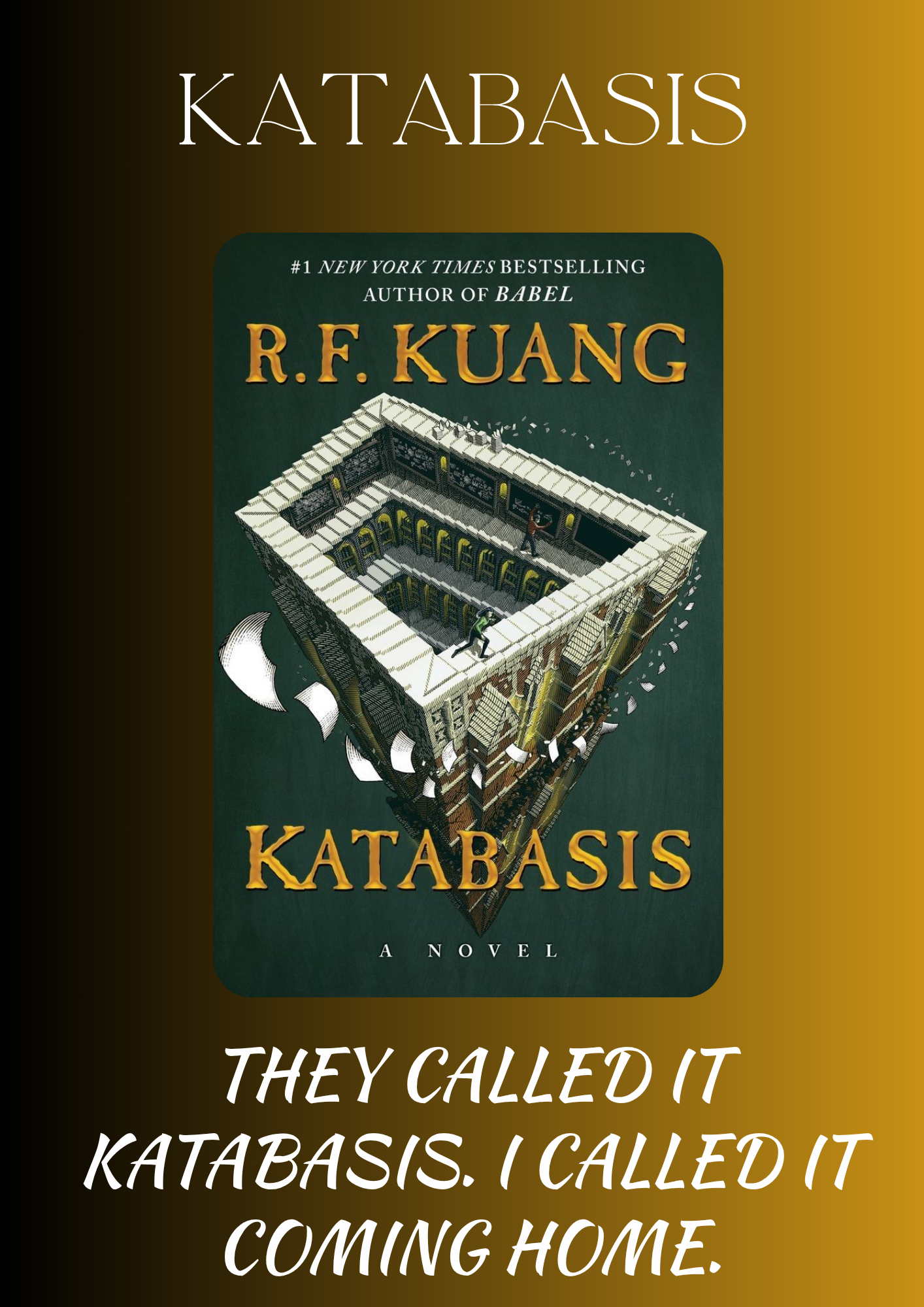There are stories that entertain. And then there are stories that confront you—demanding you to look inward, to question memory, morality, and the cost of storytelling itself. Katabasis by R.F. Kuang is one of the latter.
In this haunting, cerebral novel, Kuang once again proves her mastery in blending sharp intellect with emotional gravity. Known for her genre-defying narratives, Katabasis plunges us into a psychological and philosophical descent—true to its title, which refers to a journey into the underworld. But this underworld isn’t mythological. It’s internal. Lingering. Real.
Prepare to be challenged, unsettled, and moved.
What Kind of Book Is It?
- Genre: Literary Fiction / Psychological Fiction / Dark Academia
- Tone: Introspective, cerebral, intense
- Setting: A layered, modern landscape with echoes of myth and academia
- Pacing: Slow-burning, reflective, intellectually rich
Katabasis is not a traditional fantasy novel. It’s a literary exploration—think of it as a philosophical descent into self, shadow, and storytelling. R.F. Kuang writes with razor-sharp precision, blurring lines between fiction and reality, knowledge and identity.
Why You Should Read It
- Kuang’s signature sharp, intelligent prose and unflinching voice
- A thought-provoking take on memory, trauma, and narrative ownership
- Psychological depth that lingers long after the final page
- Layered symbolism and mythological undertones
- Perfect for readers who enjoy fiction that challenges both heart and mind
If you’re drawn to emotionally complex, thematically layered books that explore the cost of brilliance, the burden of history, and the meaning of descent, Katabasis will stay with you.
Where to Get Your Copy
You can find Katabasis by R.F. Kuang on Amazon or at your favorite bookstore. This is not a light read—but it’s a necessary one. For those ready to descend into the depths of self, language, and legacy—this book is waiting.
Bonus Tip for Readers
If you liked Katabasis, you might also enjoy:
- Babel by R.F. Kuang — for a historical, linguistic critique of empire and academia
- The Secret History by Donna Tartt — for a chilling blend of classicism, elitism, and moral ambiguity
- My Year of Rest and Relaxation by Ottessa Moshfegh — for introspective unraveling and emotional detachment
- The Atlas Six by Olivie Blake — for morally grey intellectuals and secret societies
- The Idiot by Elif Batuman — for academic confusion and personal alienation
These novels, like Katabasis, sit at the crossroads of intellect and emotion—where thought becomes haunting.
